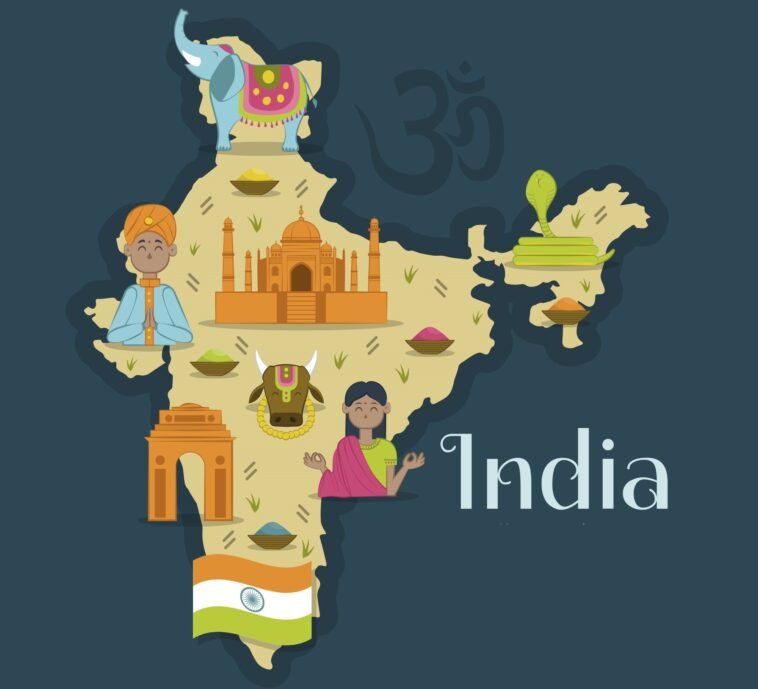Introduction: India, often referred to as the land of diversity, is a captivating mosaic of cultures, traditions, languages, and customs. Enriched by a history spanning thousands of years, Indian culture is a reflection of the country’s vibrant past and its dynamic present. In this article, we delve into the intricate threads of Indian culture, exploring its key aspects, traditions, and the essence that makes it truly unique.
- Diversity in Unity: India’s cultural landscape is incredibly diverse, owing to its vast geographical expanse and a multitude of ethnicities, languages, religions, and traditions. From the snow-capped Himalayas in the north to the sun-kissed beaches of the south, each region of India boasts its own distinct cultural identity. Despite this diversity, what binds the nation together is the underlying thread of unity in diversity, a concept deeply ingrained in the ethos of Indian society.
- Festivals and Celebrations: One of the most enchanting facets of Indian culture is its myriad festivals and celebrations. From Diwali, the festival of lights, to Holi, the festival of colors, and Eid-ul-Fitr, marking the end of Ramadan, India celebrates a plethora of religious and cultural festivals with unparalleled fervor and gusto. These festivals not only provide a glimpse into India’s rich cultural heritage but also foster a sense of camaraderie and harmony among its people.
- Art and Architecture: Indian art and architecture are renowned for their intricate craftsmanship and timeless beauty. From the awe-inspiring temples of Khajuraho and the majestic forts of Rajasthan to the intricate Mughal architecture exemplified by the Taj Mahal, India’s architectural heritage is a testament to its glorious past and cultural richness. Similarly, Indian art, be it classical dance forms like Bharatanatyam and Kathak or traditional crafts such as pottery, textiles, and jewelry, reflects the creativity and artistic prowess of its people.
- Cuisine and Culinary Traditions: Indian cuisine is as diverse as its culture, with each region boasting its own unique culinary traditions and flavors. From the spicy curries of the south to the delectable street food of the north, Indian cuisine tantalizes the taste buds with its bold flavors and exotic spices. Moreover, the concept of “Atithi Devo Bhava” (the guest is equivalent to God) underscores the hospitality ingrained in Indian culture, where guests are welcomed with open arms and treated to a sumptuous feast.
- Spiritual and Philosophical Heritage: At the heart of Indian culture lies a deep spiritual and philosophical heritage that has inspired thinkers, philosophers, and sages for millennia. From the ancient scriptures of the Vedas and Upanishads to the teachings of Buddha and Mahavira, India has been a cradle of spiritual wisdom and enlightenment. Concepts such as karma, dharma, and ahimsa (non-violence) form the cornerstone of Indian philosophy, guiding individuals on the path of righteousness and self-realization.
Conclusion: Indian culture is a kaleidoscope of traditions, customs, and values that have been nurtured and cherished for centuries. Its richness lies not only in its diversity but also in the spirit of unity that binds its people together. As India continues to embrace modernity while staying rooted in its cultural heritage, the essence of Indian culture remains timeless, beckoning travelers and enthusiasts alike to unravel its mysteries and bask in its glory.



GIPHY App Key not set. Please check settings